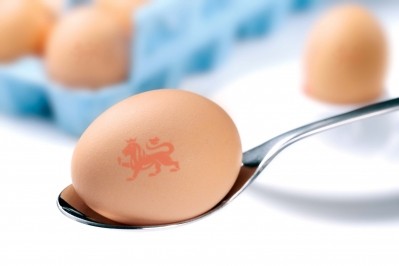UK egg market under threat from 12.5bn non-compliant eggs

The eggs are believed to have been produced by 20M battery-caged hens in two non-compliant EU Member States (MSs).
Elwyn Griffiths, chairman of the British Egg Products Association, said: “It is appalling that there are as many chickens in the UK as are illegal in the EU.”
The European Commission (EC) has refused BLEP’s request for an update on how many MSs are non-compliant, and their identities.
Legal issues
The EC is reluctant to reveal the compliance of MS for legal reasons, the two non-compliant MSs are believed to be Italy and Greece.
Mark Williams, chief executive of the British Egg Industry Council (BEIC), said: “We’ve asked the Commission for an update, but they said ‘because of a legal case they are not able to provide data’.”
The UK currently sources one-third of its eggs from the EU and BLEP is concerned that non-compliant eggs are making their way into the UK market.
“These figures are conservative estimates and in all likelihood production from non-compliant cages has actually been higher,” said Ian Jones, BLEP chairman. “Either way it’s just not acceptable and until it is stopped, there is very real concern that egg products could be entering the UK supply chain.”
No one was able to quantify how many illegally produced eggs or foods containing illegally produced eggs had been exported into the UK.
Facing a risk
Jones added that although the EU was continuing to take steps to clamp down on illegal practices, anyone purchasing egg products faced the risk that they could be sourced from hens kept in cages that were non-compliant with EU regulations.
Williams warned that manufacturers needed to make sure their supply lines are reliable. If the EU cracked down on non-compliant MSs 20M eggs would be taken off the market and there would be a serious product shortage, he warned.
Jones questioned whether manufacturers were making sufficient checks to ensure their eggs adhered to the Lion Code of Practice.
The British Lion mark on shells indicates that eggs have been produced to stringent food safety standards. The standards are set by the BEIC under the Lion Code of Practice, which is independently audited.
‘How do you know where it’s come from’
The biggest concern, according to Griffiths, is that once an egg has been taken out of its shell, manufacturers cannot look for the Lion mark for safety assurance. Therefore there is more risk of non-compliant eggs ending up in egg-based products, such as quiches, mayonnaise or egg sandwiches.
“As soon as it’s out of the shell how do you know where it’s come from?” asked Griffiths.
He added that it was “annoying” that an EU law was only fully adhered to in the UK, and not across all of the EU.
British farmers have spent £27M converting their facilities to non-battery cages, to comply with EU regulation.
The EU Welfare of Laying Hens Directive came into force on January 1 2012 and prohibited the use of battery cages.
Egg facts – at a glance
- 12.5bn illegal eggs in the EU.
- One-third of the UK’s eggs are imported from the EU.
- 80% of consumers are concerned about the quality of eggs used in food products.
- 75% of consumers said it was important that the eggs they used were British.
- 80% of consumers would like to see the British Lion mark on egg products.















